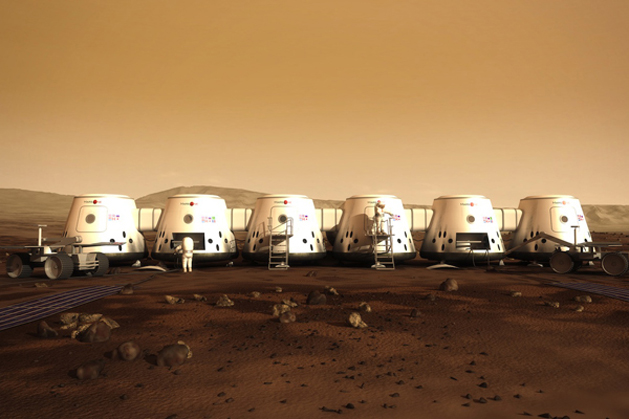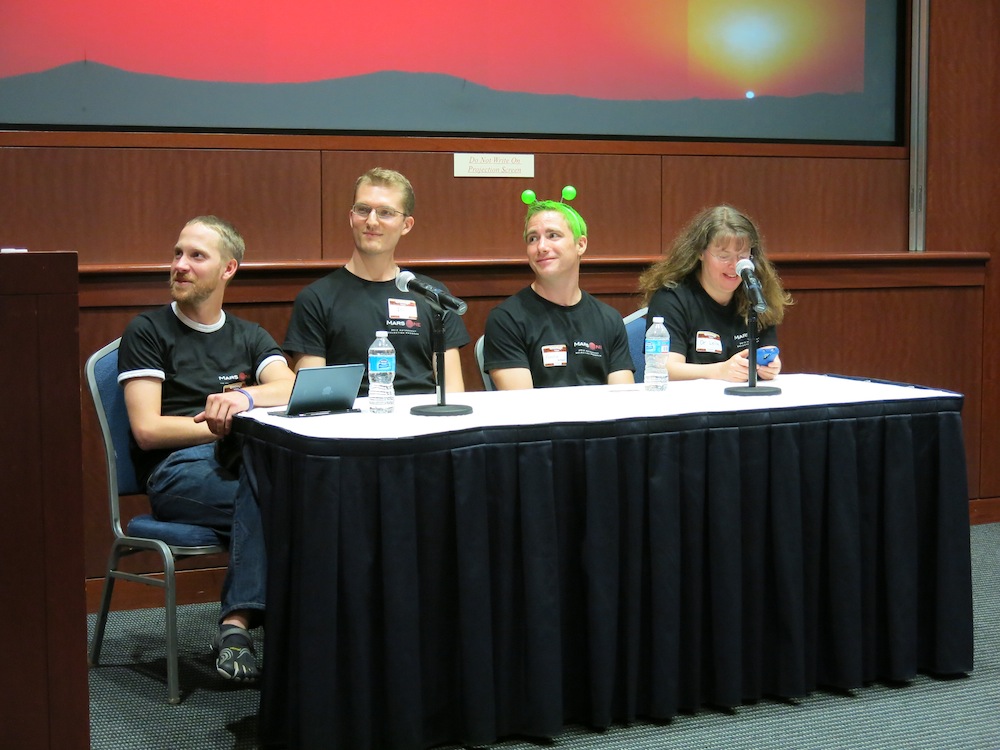'One Way Astronaut' Film Follows Aspiring Mars Colonists

A new documentary profiles the people who are willing to make the ultimate sacrifice: leaving Earth on a one-way trip to Mars.
The film, "One Way Astronaut," tells the story of the Mars One mission to send colonists to Mars starting in 2023. It follows four of the nearly 80,000 aspiring astronauts who have applied for the mission, which is the brainchild of Dutch entrepreneur Bas Lansdorp.
"We are always looking to find engaging stories," filmmaker Kai Dieho said. "Here you have a group of people willing to give up everything they have to be pioneers. There's a lot of drama in there." [Watch the film trailer for 'One Way Astronaut']
The full movie is available now in under a pay-per-view format.

The first applicant profiled is Stephan Guenther, a 44-year-old software engineer and pilot from Germany who has a wife and three kids. In the film, Guenther said it's his dream to go to Mars, even though it means leaving his family behind.
Then there's Beatriz Roriz, a 21-year-old student from Brazil and one of the few female applicants. There's nothing keeping her here on Earth, and she doesn't plan to start a relationship, she said. However, her mother said she is devastated by the idea of her daughter leaving.
Another applicant, Henri Jacquemain, is a Belgian IT specialist with two children. He likens the Mars One applicants to early explorers on Earth. All that's needed for the mission to succeed is technology and finances, he said in the film.
Get the Space.com Newsletter
Breaking space news, the latest updates on rocket launches, skywatching events and more!
Finally, there's Sara Director, a 24-year-old biology undergraduate from Philadelphia.

"I've wanted to go [to Mars] forever," Director told SPACE.com at a meeting of Mars One applicants held Aug. 3 in Washington. "This has to happen." In the film, Director's father said he supports his daughter's decision to go because it's her dream.
Dieho summed up the applicants in one word: curiosity. They're quite intense people, and very science-minded, he added. The filmmakers chose to focus on the aspiring astronauts because "that's really where the story is," Dieho told SPACE.com. But they also wanted to describe the science, he added.
The film takes viewers to Biosphere 2, a closed, artificial ecosystem in the desert outside Tucson, Ariz. The size of two-and-a-half football fields, the biosphere contains a rainforest, ocean, wetland, savannah and fog desert. The ecosystem paints a picture of what life in a Mars colony could be like. In this world, people would grow their own food from plants, but it could take a while — in Biosphere 2, it took four months to make a pizza.
The film also features Norbert Kraft, Mars One's medical officer. Kraft describes how the first four astronauts will be observed for medical issues in the decade leading up to launch.
The filmmakers interview two scientists who study Mars-like environments on Earth about the risks of living on Mars. One of the main risks is radiation from cosmic rays or solar flares, but living in lava tubes could protect against these threats, the researchers said. While they think sending humans to Mars in 10 years may be too optimistic, they are enthusiastic about the mission.

In addition, a settlement on Mars poses legal questions. For instance, a lawyer in the film asked, what laws would apply on Mars?
Reactions to the film have been mixed, Dieho said. The prospect of leaving everything to go live on Mars is a very emotional topic; "either people love the idea, or people really hate it," he said.
As for the mission itself, Dieho seemed hopeful. "Maybe, at this point, it’s a big-boy dream, but it can become a reality by surfing the wave of commercial spaceflight," he said.
"One Way Astronaut" was produced by Tetteroo Media, and half of the proceeds will be donated to the Mars One Foundation.
Follow Tanya Lewis on Twitterand Google+.Follow us @Spacedotcom, Facebook and Google+. Original article on SPACE.com.
Join our Space Forums to keep talking space on the latest missions, night sky and more! And if you have a news tip, correction or comment, let us know at: community@space.com.










